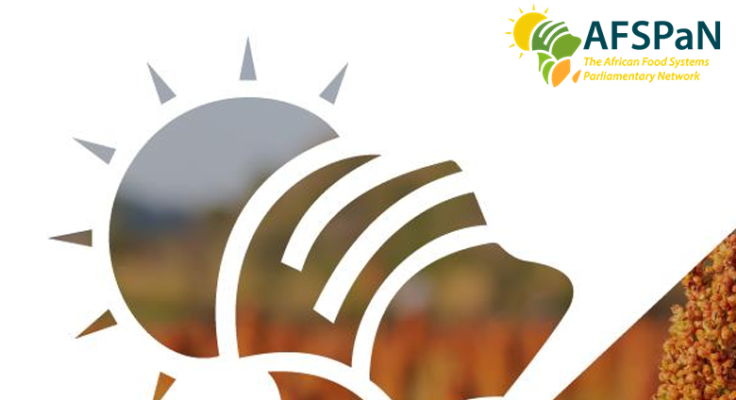
A call to action: delivering on Benin's food systems pathway
Benin has addressed critical challenges in agriculture, nutrition, and resilience to external shocks through national dialogues. These dialogues now guide Benin’s journey towards food system transformation. Coordinated by the Ministry of Agriculture, Livestock, and Fisheries (MAEP), with support from GAIN and the Zero Hunger Coalition, the national dialogue that took place in Bohicon in June 2024 identified the priorities for the national food system pathways. It followed the first dialogue held in 2021 which produced an initial report that was not validated.
Priority pathways from the follow-up dialogue
The follow-up national dialogue has identified five priority pathways that need to be addressed as part of the country’s food system transformation.
Ensuring a stable supply of food
The national dialogue recognised the importance of ensuring a stable food supply year-round. Benin's agricultural sector has seen significant growth in the production of key crops such as maize, cassava and rice, with increases of 36%, 9.1%, and 36.3%, respectively, between 2017 and 2023. Despite this, challenges remain in maintaining consistent supply, particularly in the wake of climate shocks and economic instability.
As notes Françoise Sayi, GAIN's Country Director, "Benin has made significant strides in boosting its agricultural production, but more work is needed to ensure that this production translates into food security for all and guarantee healthy and affordable diets for all Beninese. We need to address bottlenecks in food distribution and ensure that vulnerable populations have access to nutritious food, even during times of crisis."
Promoting improved post-harvest management practices by scaling up the use of semi-modern equipment and encouraging smallholder farmers to adopt best practices in food production and processing were interventions highlighted in the national dialogues. Doing so will help to not only reduce losses but also enhance the nutritional value of processed foods.
Moving toward sustainable consumption patterns
The national follow-up dialogue also emphasised the need to promote more sustainable consumption patterns by encouraging the population to shift toward local and nutritious foods. The national dialogue revealed that while agricultural production is increasing, the consumption of imported, less nutritious foods remains high, thus contributing to malnutrition and food insecurity.
According to Francine Picard, Director of Partnerships at the Shamba Centre for Food & Climate "Encouraging local production and consumption is not just about supporting farmers and SMEs, it is also about promoting a more sustainable and nutritious food system. Efforts to build climate-resilient food systems need to include access to local and nutritious food that is produced in an environmentally sustainable way."
Programmes to educate the public on nutrition and sustainable food consumption are essential to change consumer behavior in the longterm. The Government of Benin is working to raise awareness about the benefits of consuming locally-produced foods and the impact of food choices on the environment. One example already in place is the “October local consumption month” initiative.
Boosting nature-friendly production
To meet the demands of a growing population without exacerbating environmental degradation, Benin’s food system pathway promotes nature-friendly production methods. This includes a focus on climate-smart agriculture, the use of bio-fertilizers, and water management systems to improve yields while protecting the environment.
Françoise Sayi highlights the importance of climate-smart agriculture and its role in sustainable food systems. "Benin needs to invest in technologies that reduce the environmental impact of food production while enhancing productivity," she notes, adding that these investments are crucial for building resilience to climate shocks which have become more frequent and severe in recent years.
Benin has made progress in the operationalisation of its National Agricultural Development Fund (FNDA), which supports farmers in adopting more sustainable practices. However, more needs to be done to promote the use of improved seeds and farming techniques that are resilient to climate change.
Promoting equitable livelihoods
Ensuring that food systems work for everyone, especially smallholder farmers, women and youth, is a central pillar of Benin’s food system transformation. The national follow-up dialogue highlighted the need for policies that support equitable access to resources such as land, funds, and markets, in particular for marginalised groups.
"At the Shamba Centre, we believe that food systems transformation must be inclusive. Women and youth play a crucial role in agriculture, and it is essential that they are empowered through equitable access to resources," remarks Francine Picard. She highlights the importance of promoting the adoption of indigenous crops, which not only enhance biodiversity but also provide economic opportunities for smallholder farmers, SMEs, women and youth.
Building resilience to shocks
Benin’s food systems remain vulnerable to external shocks such as climate change, global economic instability, and the consequences of health crises, such as COVID-19. The national dialogue prioritised interventions aimed at strengthening the resilience of food systems, including building more robust supply chains and improving infrastructure to support food storage and distribution.
For Francine Picard, "The COVID-19 pandemic and the war in Ukraine have shown us how vulnerable our food systems are to global shocks. We need to build resilience into every aspect of the food system, from production to distribution, and thereby ensure that we can withstand future crises."
The national dialogue also emphasised the importance of strengthening social protection programmes, such as cash transfers, to help the most vulnerable households access food during times of crisis.
Next steps
Benin’s Food System Pathway builds the foundation for a more sustainable, resilient, and equitable food system. However, the success of this transformation depends on continued commitment and collaboration among all stakeholders.
For success, Francine Picard emphasises the importance of partnerships: "Transforming food systems is not something that any one organisation can do alone. It requires strong partnerships between governments, civil society, the private sector and the international community."
Françoise Sayi agrees and adds that this transformation must be driven by a shared vision. "We need to ensure that our food systems deliver not only food security but also nutrition, sustainability and equity. This is the future of food systems in Benin, and we are committed to making this vision a reality."
As Benin moves forward with its food system transformation, the insights from the national dialogue will serve as a guide for the country’s efforts to meet its food security and development goals.



